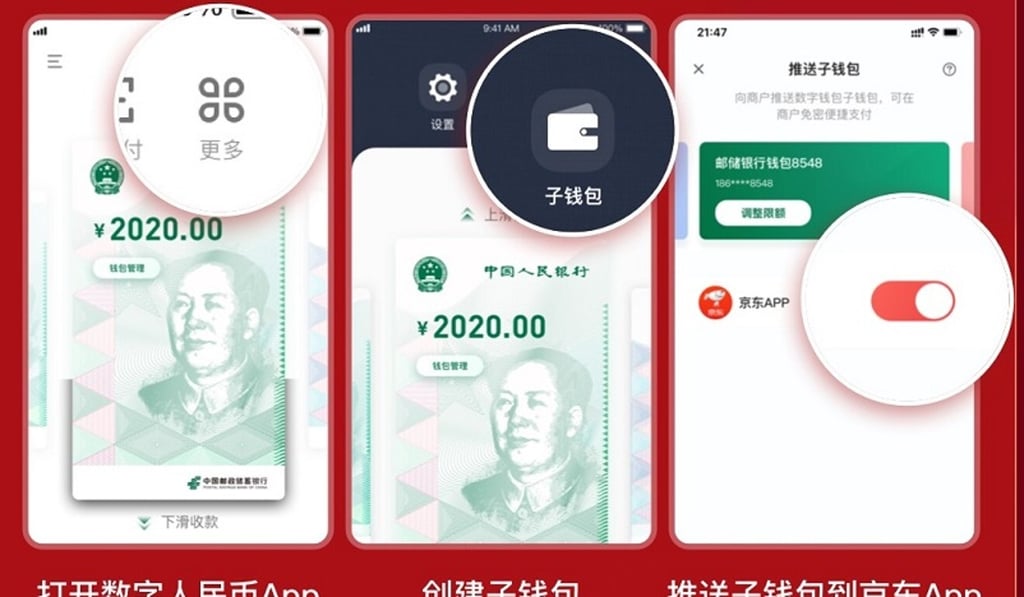How many orders did JD.com get during its digital yuan trial at the Double Twelve shopping festival?

JD kicked off the Double Twelve festival on Friday evening with nearly 20,000 orders using the digital yuan, known officially as the Digital Currency Electronic Payment (DCEP), the company said in a WeChat post. The trial, the first for an online shopping platform in China, was conducted as a partnership between JD Digits, the platform’s financial arm, the People’s Bank of China and the local government of Suzhou.
“JD has over 441 million annual active users and nationwide logistics services as well as omnichannel operations, and these advantages will help promote the building of the DCEP ecosystem,” Peng Fei, head of the DCEP programme at JD Digits said in a statement. The test is also meant to stimulate consumption and the real economy, Peng added.
Suzhou may be the first city in China to test digital currency for online shopping, but this was just one of the several digital yuan trials China’s central bank has conducted in the past year in a bid to move the country towards a cashless society.
Other pilots involving the DCEP are being held in Xiongan, Chengdu and venues for the 2022 Winter Olympics in Beijing, but the central bank has yet to provide an official timetable for the full launch of the digital yuan.

JD’s data shows that first-time digital yuan users during the Double Twelve shopping festival were overwhelmingly young, with over 80 per cent born after 1980. Statistics also showed that digital currency use was slightly skewed towards men, who accounted for 57.6 per cent of the purchases. The largest single online payment amount exceeded 10,000 yuan.
The Suzhou trial was the first time selected digital currency users were invited to try out what the central bank called “dual offline wallets”, which allowed them to pay for goods in local shops without having to be connected to the internet.
Source link

